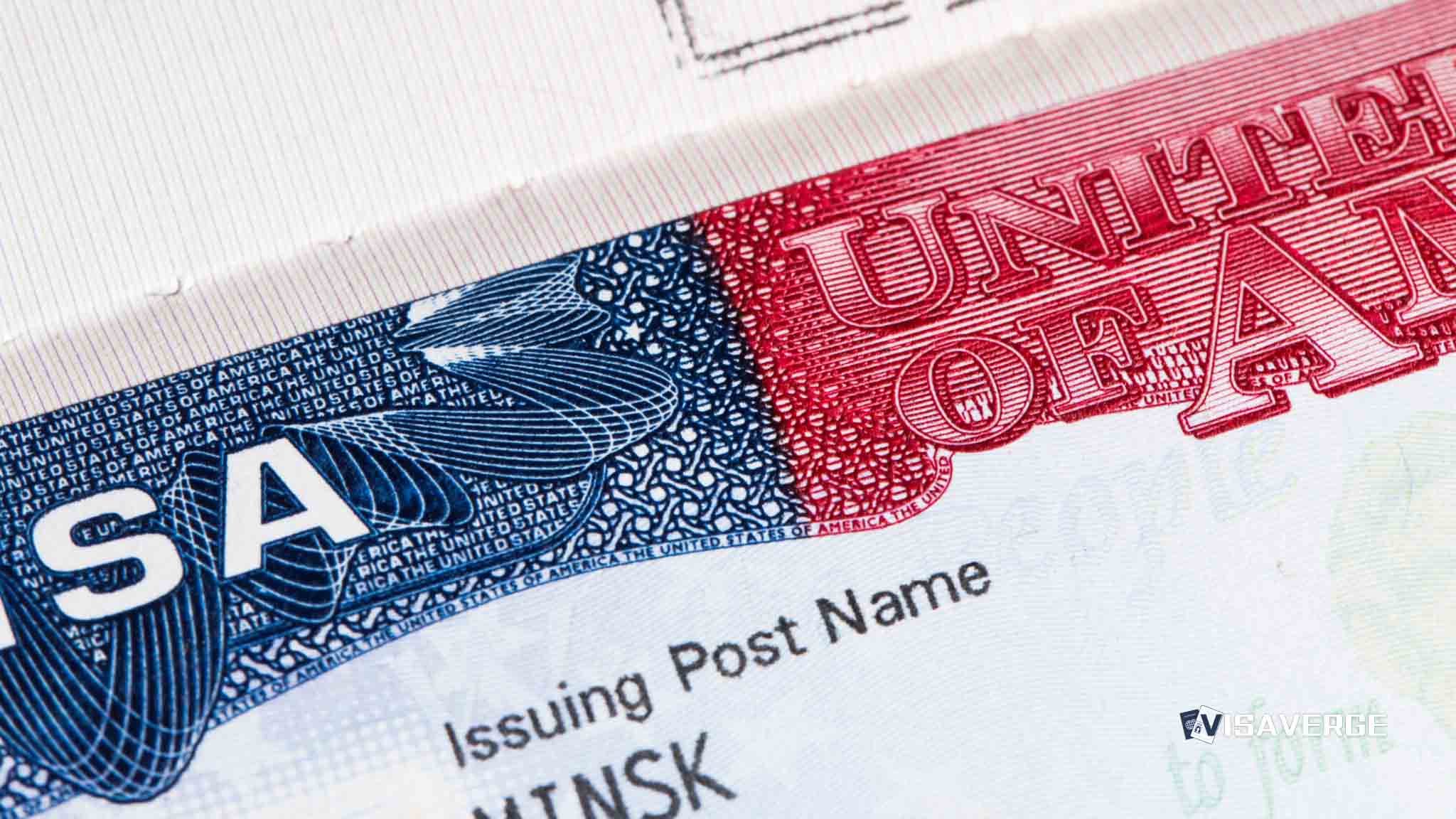Key Takeaways
• UK ends most overseas care worker recruitment from March 2024; family members cannot join new workers.
• Salary threshold raised to £25,000 from March 2025, excluding many care assistants from visa eligibility.
• Health and care worker visa applications expected to drop 81% between 2024 and 2025.
The United Kingdom 🇬🇧 has introduced major changes to its visa rules for care workers—moves that have sent shockwaves through an already-stretched social care sector. Announced by Home Secretary Yvette Cooper, these new UK Visa Rules are designed to cut the number of migrants entering the country while tackling the problem of exploitation among overseas staff. However, care home bosses, worker unions, and healthcare campaigners are raising the alarm that these changes could make it much harder to find the people needed to look after the elderly and disabled across England.
Let’s break down what’s happened, why it matters so much, and what you might need to know if you or your loved ones rely on these services.

What Has Changed: Key Features of the New UK Visa Rules
The changes announced by Home Secretary Yvette Cooper mean that the path for overseas care workers looking to work in the United Kingdom 🇬🇧 is now much tougher. The main features of the new rules include:
- End to Most Overseas Recruitment: The Immigration White Paper laid out by Yvette Cooper signals an end to large-scale hiring from outside the UK for care work jobs. From now on, employers can only look abroad in very limited cases, and only after they have tried hard to fill jobs with local candidates first.
- Ban on Bringing Family Members: Since March 2024, new overseas care workers can no longer bring their children, partner, or other dependants to the United Kingdom 🇬🇧. This alone has made it a lot less appealing for workers to move their lives to the country.
- Salary Threshold Raised: Starting from March 2025, care staff hired from abroad must be paid at least £25,000 a year to qualify for a visa. This is more than what many care assistants and support workers usually earn, so it pushes them out of the running for jobs.
- Focus on Local Workforce First: Employers must now demonstrate that they have made every effort to fill positions with people already living in the UK. Only after this can they even think about hiring from abroad.
All of these steps are aimed at reducing net migration to meet government promises, while also stopping the exploitation and abuse of overseas care staff that some unscrupulous employers have been caught committing.
The Numbers: A Dramatic Decline in Overseas Recruitment
The effects of these rule changes have already started to appear in the data. Before these stricter UK Visa Rules, the care sector saw huge numbers of new international recruits come in to help fill gaps. For example:
- In the 12 months from April 2023 to March 2024, there were 129,000 health and care worker visa applications.
- For the year ending March 2025, following the introduction of the new measures, that number is expected to collapse to just 26,000 applications.
- According to official figures, there was an 81% drop in new main applicant visas in the period between April 2024 and January 2025 compared to the previous year.
These sharp declines are due in large part to the two main rule changes—making it illegal to bring dependants and raising the salary threshold above what most care jobs pay.
Why Does This Matter? The Scale of the Care Sector Crisis
The timing of this drop in overseas care worker numbers could hardly be worse. The care sector in the United Kingdom 🇬🇧 has long struggled with not enough staff, and the gap is wider than in most other industries:
- Last year, social care in England had over 100,000 unfilled jobs—a vacancies rate three times higher than the national average.
- International recruits have in recent years played a vital role in preventing the whole system from falling into chaos.
Many care home managers say there simply are not enough local workers willing or able to fill these low-paid, demanding jobs, no matter how hard providers try. Age UK, a leading charity for older people, has warned that if overseas recruitment ends, “many services would have struggled”—and many still might.
If there aren’t enough staff, some care homes might have to close, while others may be forced to cut back on the number of residents they can support. This, in turn, can lead to more pressure on the NHS: when vulnerable people cannot get help in the community, they often end up stuck in hospital for longer, or get admitted when they might otherwise have been able to remain at home.
Reactions from Across the Sector
The shift in UK Visa Rules for care workers has faced swift pushback from sector leaders, charities, and care worker associations.
The Homecare Association—a leading voice for homecare providers—called international hiring “a lifeline” that lets older and disabled people stay safe at home. They warn that these changes may send the sector “back toward crisis levels.” According to Dr Jane Townson OBE, Chief Executive of the Homecare Association:
“Care providers are already struggling… We are deeply concerned the Government has not properly considered what will happen…”
For people who need daily support, or families trying to arrange care for loved ones, these warnings are serious. Not having enough care workers could mean long waiting times for home visits, rushed appointments, and sometimes even being unable to get any support at all.
Campaigners argue that asking employers to focus only on “displaced migrant workers” already in the United Kingdom 🇬🇧 isn’t enough, because those numbers fall far short of what’s needed. They are urging the government to come up with a broader plan that goes beyond immigration controls. This means better funding, fairer pay for staff, and improved training and working standards—things the government says it wants to see, but which many in the sector fear are not happening quickly enough.
The Government’s Thinking: Protecting Workers and Reducing Migration
Government officials, including Home Secretary Yvette Cooper, say these rules are about fixing two big problems at once:
- Addressing Exploitation: Since July 2022, over 470 sponsorship licences have been revoked because some care providers misused the system or mistreated overseas employees. By tightening the rules, the government hopes to protect future workers from bad employers.
- Reducing Dependence on Overseas Workers: Ministers say that the United Kingdom 🇬🇧 should not be so heavily reliant on international labour for essential services. Instead, they want to “professionalize” social care—raising its status, attracting domestic recruits, and making sure working in care is seen as a good long-term job.
To help with this, the government has pointed to new ideas, such as:
- Fair Pay Agreements: The plan is to negotiate better wages for care staff, in the hope that more people from the United Kingdom 🇬🇧 will see care work as an appealing career.
- Expanded Training Pathways: There are promises of more support and scholarships to help people train for jobs in social care, climbing the ladder into better-paid positions.
While these plans sound positive, VisaVerge.com’s investigation reveals that many experts remain doubtful about how quickly they will help. Chronic underfunding and poor working conditions have been major problems for years, and not everyone believes that higher pay and training alone will fix deep-rooted issues.
What About Current Overseas Care Workers?
For people already in the country on a health and care worker visa, the new UK Visa Rules provide some options:
- If the company employing them loses its sponsorship licence (for example, if caught breaking rules), sponsored workers can extend their visa or move to another sponsor—at least until 2028.
- However, after 2028, it is unclear what new rules might be brought in, which leaves many workers uncertain about their future.
Workers already in the system may keep their right to work, but with much tougher restrictions on bringing over family or changing jobs, the risks still loom large.
What’s at Stake: The Risk of a Growing Crisis
The big worry among care sector leaders is that, without more public investment and an urgent rethink of the current plan, the country could see an even deeper crisis in adult social care. To put it simply:
- Finding enough staff locally is already extremely tough.
- Closing the door on overseas workers without fixing pay, funding, and conditions at home could lead to more unfilled jobs than ever.
- Disrupted services might mean more elderly people stuck in hospitals, fewer people living independently, and more families under strain.
Here’s a quick look at the effects expected after these UK Visa Rules take full effect:
| Issue | Status After New Rules |
|---|---|
| Overseas recruitment | Ended except for limited extensions/switches |
| Vacancy rates | Expected to rise |
| Service continuity | At risk; possible closures/disruptions |
| Pressure on NHS | Likely to increase |
Different Views: Who Supports and Who Objects?
While care providers, worker unions, and advocacy groups have mainly criticized the new measures, some parts of the public agree with the idea of cutting migration. They argue that the United Kingdom 🇬🇧 should train and pay its own citizens instead of relying on international staff. Others worry that rapid change without enough training or pay rises will make things worse, at least in the short term.
Government officials insist the new system will be fairer and more stable by reducing exploitation. But sector leaders argue the lack of funding and years of low pay mean it’s not realistic to expect thousands of new domestic workers to appear overnight. They say meaningful change takes time and more investment than what is currently promised.
What Can Employers and Workers Do Now?
For care providers:
- Focus must now be on recruiting, training, and retaining domestic talent.
- International recruitment is limited to very narrow situations, and only after showing that a strong, fair effort has been made to hire domestically.
For overseas care workers already in the United Kingdom 🇬🇧:
- Monitor changes to visa sponsorship closely, as losing your sponsor could force a change of job or require extending your visa within the rules.
- Seek help from unions and worker support organizations if you run into employment issues.
For people looking for details on current immigration guidelines, application forms, and official instructions for overseas health workers, you can review the latest government policies on the official UK government immigration website.
The Road Ahead: Will Change Happen Fast Enough?
As the new UK Visa Rules for care workers take hold, the future of social care in the United Kingdom 🇬🇧 hangs in the balance. Will government promises about fair pay and better training deliver enough new staff to replace lost overseas workers? Can Home Secretary Yvette Cooper strike the right balance between controlling migration and making sure vulnerable people still get the care they need?
If these challenges are not solved soon, the risk of serious service disruption remains: more care home closures, increased strain on the NHS, and rising worries for families across the country.
For now, all eyes are on whether the government follows through with robust funding and real support for its care staff. And for those who count on these essential services each day, the hope is that their needs will not be lost in a debate about borders and numbers.
As more updates are released and new data becomes available, staying informed on rule changes and sector support remains vital. The changes to UK Visa Rules reflect a wider struggle between controlling migration and meeting the real needs of a fast-growing, aging population. The next few years will reveal whether the balance struck by Home Secretary Yvette Cooper manages to protect both the integrity of the system and the people who depend on it most.
Learn Today
Visa Sponsorship Licence → Government permission that allows employers to hire overseas workers under specific visa rules.
Salary Threshold → The minimum annual salary required to qualify for a visa in certain job categories.
Net Migration → The difference between immigrants entering and leaving a country within a set period.
Social Care Sector → Industry providing support to elderly, disabled, and vulnerable individuals needing assistance.
Fair Pay Agreements → Negotiated contracts aiming to improve wages and working conditions for care workers.
This Article in a Nutshell
The UK’s new visa rules restrict overseas care worker recruitment, ban family dependants, and raise salary requirements, risking severe staff shortages and more pressure on the NHS amid already high vacancy rates.
— By VisaVerge.com
Read more:
• Danish Conservatives back stricter work permit and immigration policies
• Friedrich Merz’s immigration policies face criticism in new global report
• Supreme Court focuses on process in key immigration cases this year
• Immigration raids in Nashville disrupt classrooms as student absences rise
• Immigration Court sets new record for asylum decisions and denials













